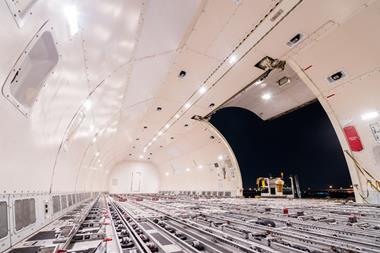The Freight Transport Association (FTA) has called for more clarity on the UK's future immigration rules for European Union (EU) citizens after Brexit, warning a staff shortage could hit supply chains.
On January 21 the UK government said it had scrapped plans for a £65 pound fee for any EU citizens that planned to apply to stay in the country once it leaves the union at the end of March.
However, the FTA said there was not enough time to process 'settled status' applications from the 3m EU citizens that currently live in the UK, many working in the logistics industry.
“European workers are a key supporter of the UK’s complex supply chain, undertaking vital roles in all areas of moving goods and services across the country to support manufacturers, retailers, schools, and individuals,” said Sally Gilson, FTA head of skills.
“The news that the Settled Status Scheme is finally open to selected applicants is encouraging, but too little too late – 3m people cannot be processed in eight weeks and there is no system for employers to check right to work.
“In addition, businesses still cannot make plans for their workforce after March, with the Future Immigration White Paper still to be ratified.
"This is unacceptable after two years in which government could have clarified the situation to ensure consistency in the supply chain – which, after all, underpins every facet of daily life.
"It seems ludicrous that government has itself confirmed that businesses cannot check EU workers’ right to work until a suitable system is in place – so how and when is this to be possible?”
In December the Government published the White Paper for Future Immigration, during which a consultation on the salary threshold for EU workers was promised.
"That has not been forthcoming and employers need to know whether they can recruit outside of UK post Brexit for roles earning under £30,000?" Gilson said.
"Will job offers starting after 29 March still stand? Will a system be ready to check the right to work? Will frontier workers, who live in the EU but commute to jobs here, still be free to work in the UK?"










